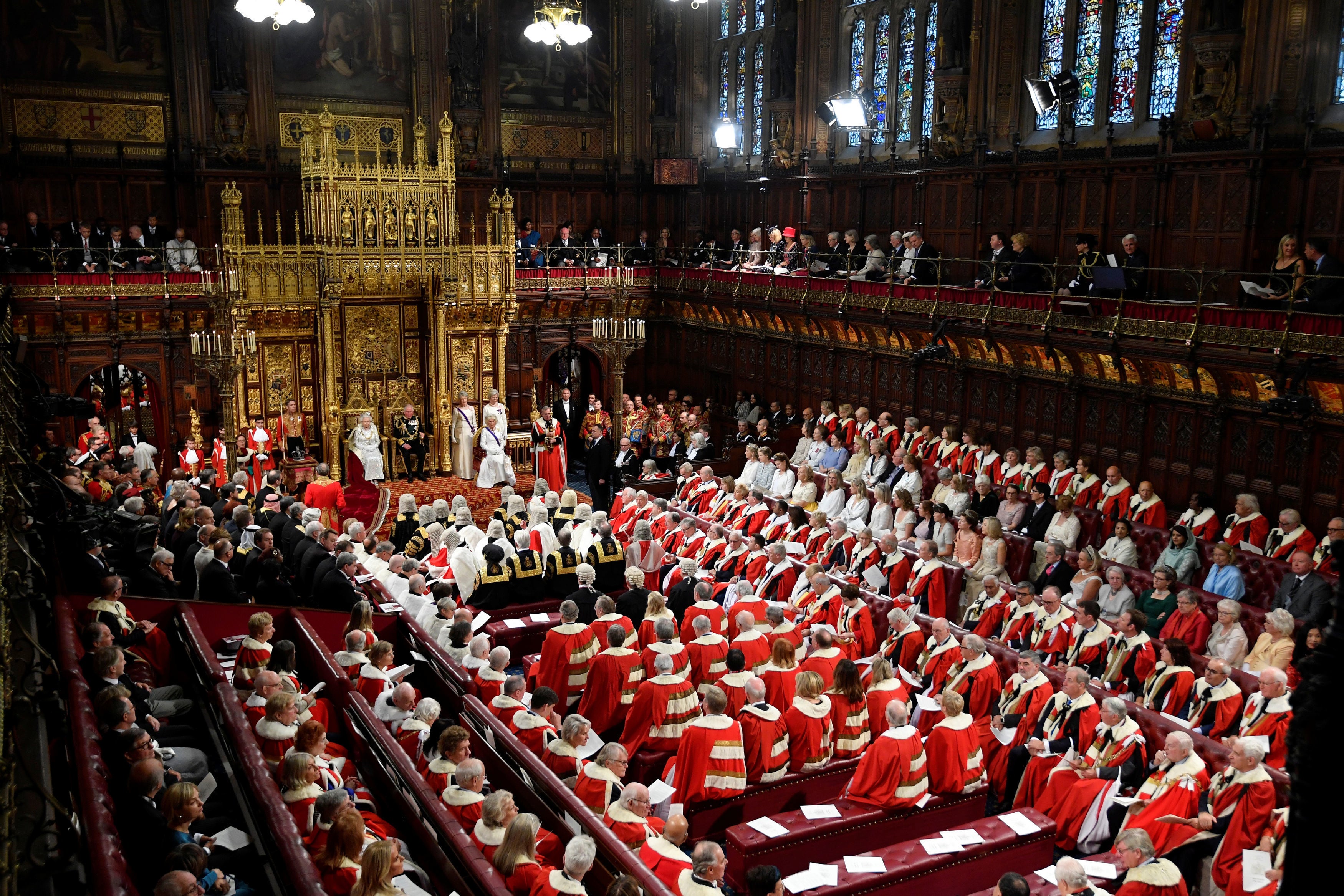What to expect from the Queen’s Speech as Boris Johnson sets out government’s agenda
The Queen’s Speech will be heavy on the ‘levelling up’ rhetoric, but campaigners will be hoping for commitments on legislation that failed to materialise in the last parliament, writes Ashley Cowburn


Unveiling the government’s agenda for the coming year from a golden throne situated in the House of Lords, the Queen will this week deliver a short speech – prepared for her by No 10 – which will touch on Boris Johnson’s key priorities.
While no stranger to the pomp and ceremony of the event — it will be the 67th occasion on which the Queen has opened parliament since November 1952 — the monarch will find a scaled-down affair compared to previous years due to the Covid restrictions, with guests banned and social distancing measures in force.
Expect the speech itself to be littered with rhetoric on the government’s “levelling up” agenda and how the prime minister, buoyed by the local election results in England and the Conservatives’ victory at the Hartlepool by-election, intends to spread opportunities across Britain.
As the coronavirus crisis recedes, No 10 said at the weekend the new agenda will also focus on the nation’s recovery, supporting jobs, backing the NHS, and delivering plans on how the government intends to reach the legally binding net zero greenhouse gas emissions by 2050 — ahead of a crucial climate change summit in the autumn.
After the Queen has finished delivering her speech, the government is expected to publish a document outlining around two dozen bills the prime minister intends to introduce over the course of the next parliament.
While some pieces of legislation will be new, many have been well trailed in recent weeks, including a planning shake-up to overhaul rules on house building in England, and an NHS reform bill to return decision making powers to ministers.
Some pieces of legislation will be carried over from the last parliament, including the Environment Bill, which was repeatedly delayed to the dismay of campaigners, and the controversial Police, Crime, Sentencing and Courts Bill, which attracted major criticism for its proposals to increase the home secretary’s powers and curb protests.
There will also be commitments to bills on issues mentioned at the last Queen’s Speech in 2019, but failed to materialise, including an Elections Integrity Bill, which aims to introduce voter ID at elections, and a Renters’ Reform Bill, giving tenants more rights in England.
And there will be legislation to restore the prime minister’s power to choose the date of the general election, abolishing the five-year fixed term introduced under David Cameron’s coalition government in 2011.
Chief executive of the charity Shelter, Polly Neate, told The Independent that private renters have “lived at the mercy of a broken renting system for too long”, as she urged the government to ensure Section 21 — “no fault” evictions — are abolished.
“As we emerge from this Covid crisis, the prime minister should use the Queen’s Speech to bring the [Renters’ Reform] Bill forward, and give England’s 11 million private renters the security and rights and they deserve”.
Key questions also remain over whether Mr Johnson will deliver on his pledge to reform the broken social care system — something he vowed to do in his first speech from No 10 after winning the Tory leadership contest in 2019 — or whether it will be kicked back until the autumn.
Speaking at the weekend Michael Gove, the Cabinet Office minister, hinted at the latter, saying a social care reform plan will be “heading for the statue books” by the end of the year. “We want to make sure that we can get cross-party support for it,” he said. It’s worth noting that opposition parties at Westminster are still awaiting an invitation from No 10 to discuss any proposals on the table.
LGBT+ campaigners are also hoping to see a commitment outlined on Tuesday delivering on the government’s promise to ban conversion therapy — a discredited practice that seeks to suppress or change an individual’s sexuality or gender identity. Despite being described as “abhorrent” by Mr Johnson and the Conservatives first vowing to eradicate the so-called practice three years ago, plans are yet to be published.
“We’re expecting the government to introduce proposals to ban so-called ‘conversion therapy’ in the Queen’s Speech,” Stonewall’s CEO Nancy Kelley told The Independent. “It’s already more than 1,000 days since the government pledged action, and any further delay leaves LGBTQ+ people at serious harm from these abhorrent practices.”
Join our commenting forum
Join thought-provoking conversations, follow other Independent readers and see their replies
Comments